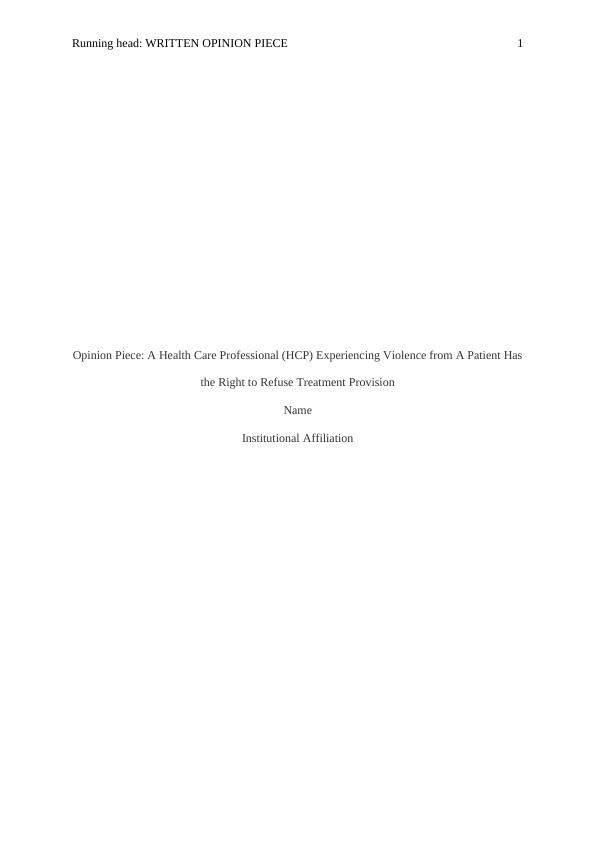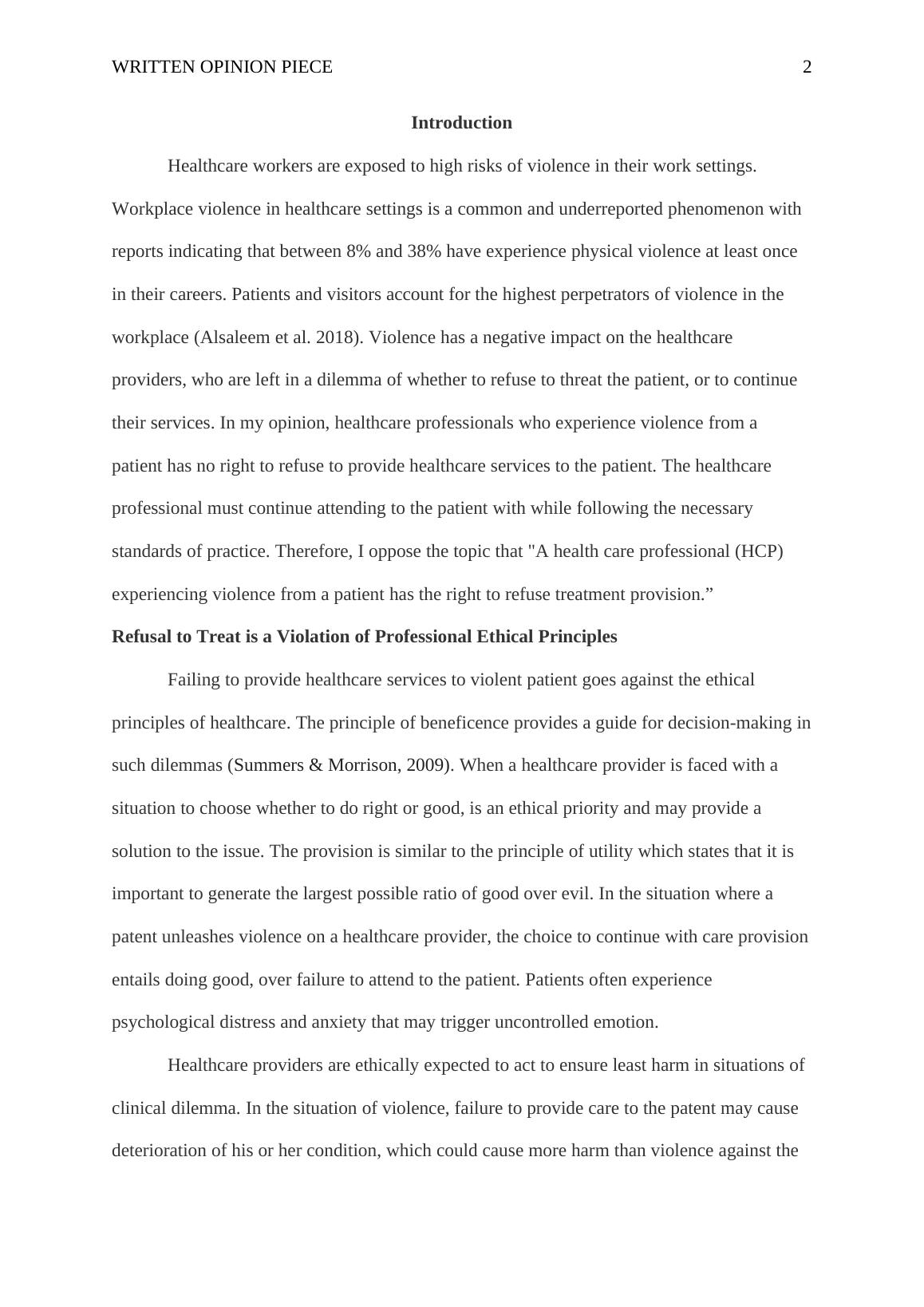Principles Of Healthcare Ethics
5 Pages1398 Words37 Views
Added on 2022-09-13
Principles Of Healthcare Ethics
Added on 2022-09-13
ShareRelated Documents
End of preview
Want to access all the pages? Upload your documents or become a member.
Transcript Definition & Meaning -
|5
|1397
|17
Ethical Dilemma in Healthcare
|8
|2089
|33
Ethical Issues in Healthcare: A Case Study of Amos from Malawi, Australia
|8
|2316
|491
Ethical Dilemma in Nursing
|11
|2626
|296
Nursing Ethics and Critical Aspects in Critical Healthcare Complications
|1
|1220
|171
Presumed Consent Policy
|7
|1107
|41


